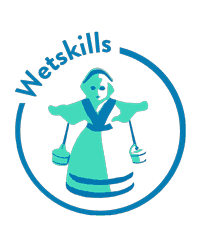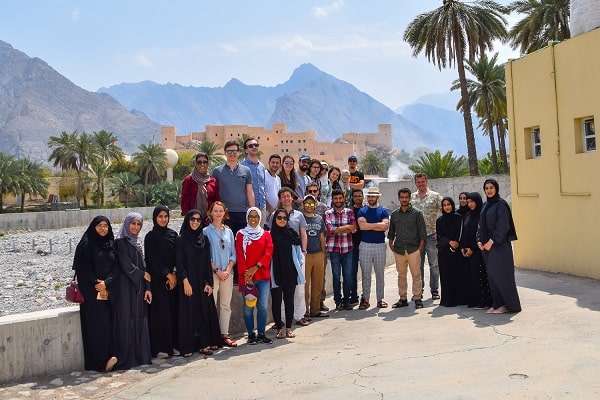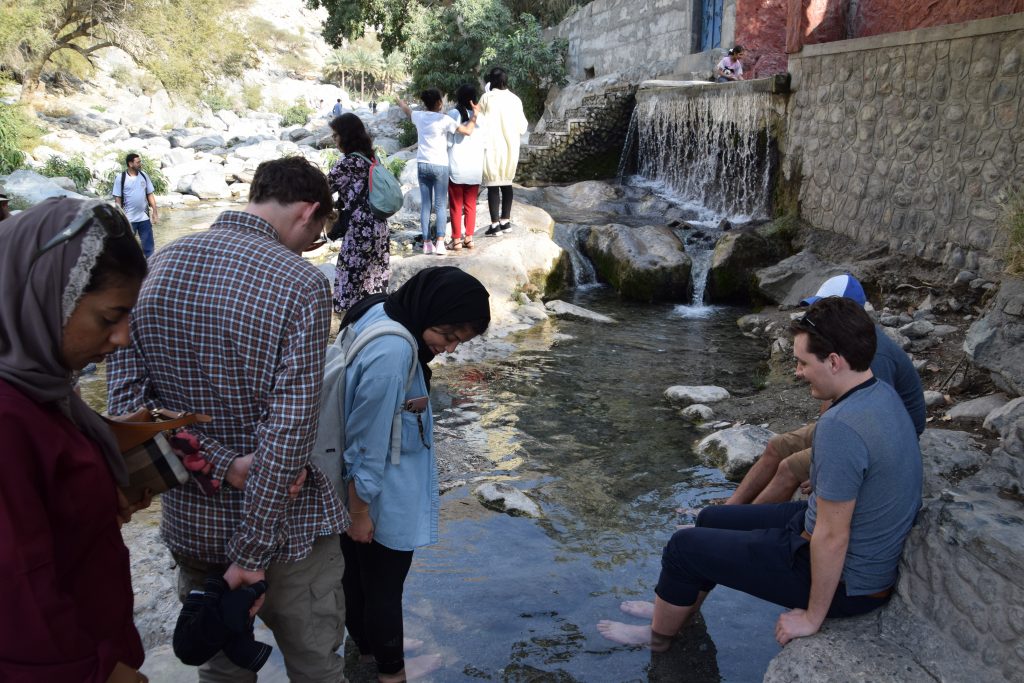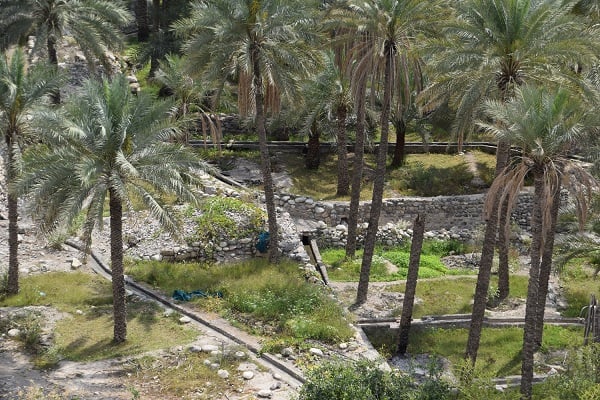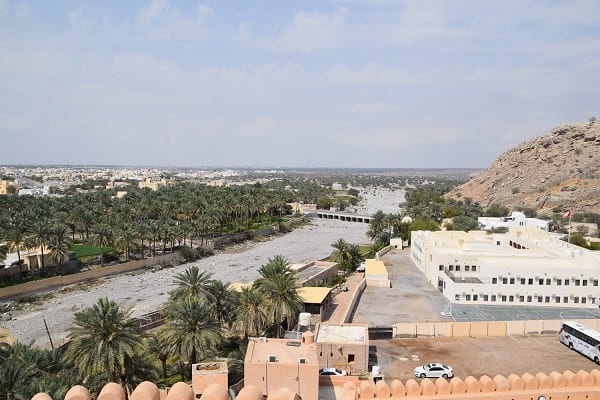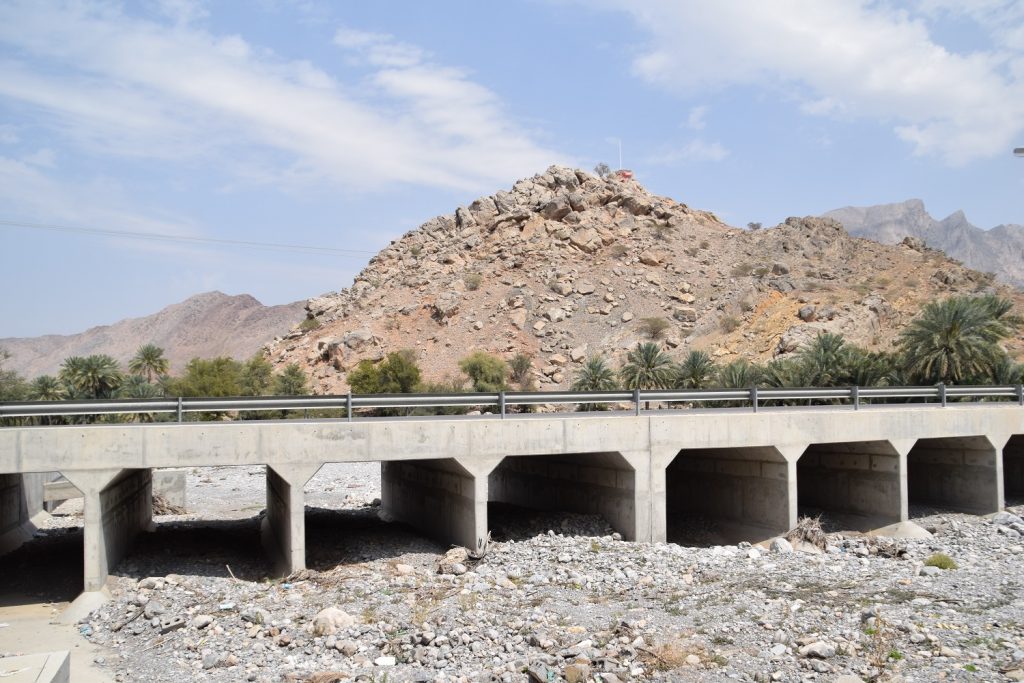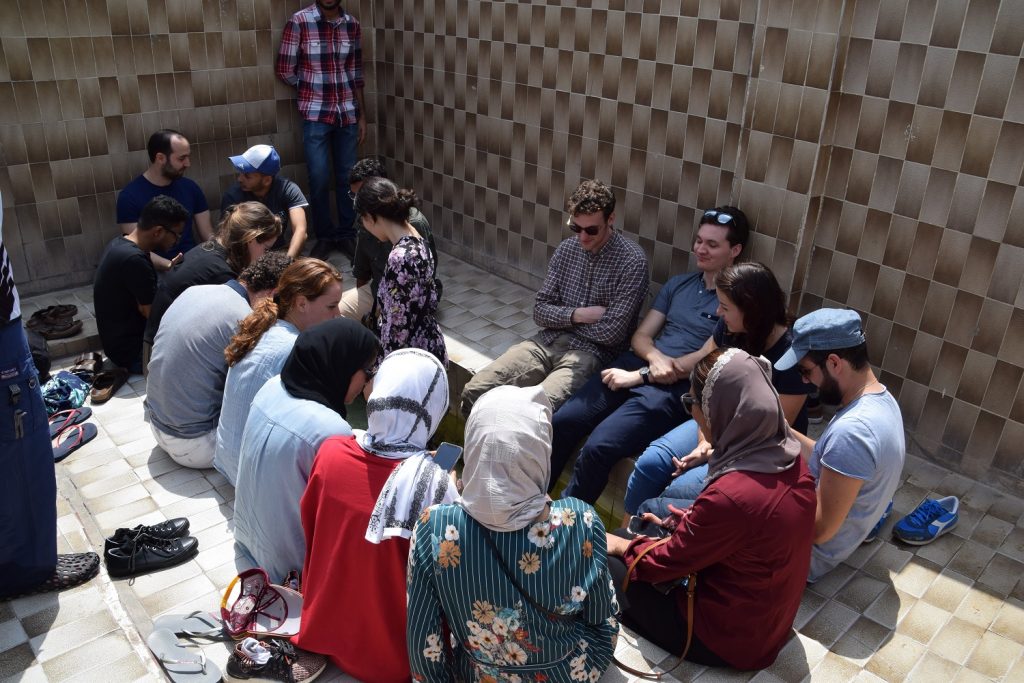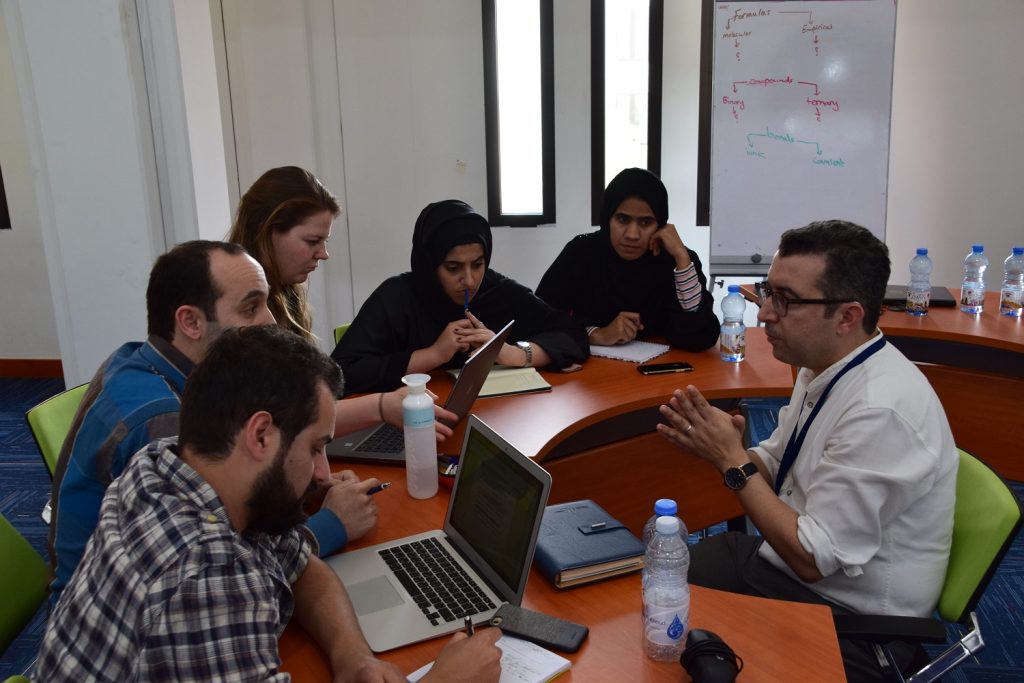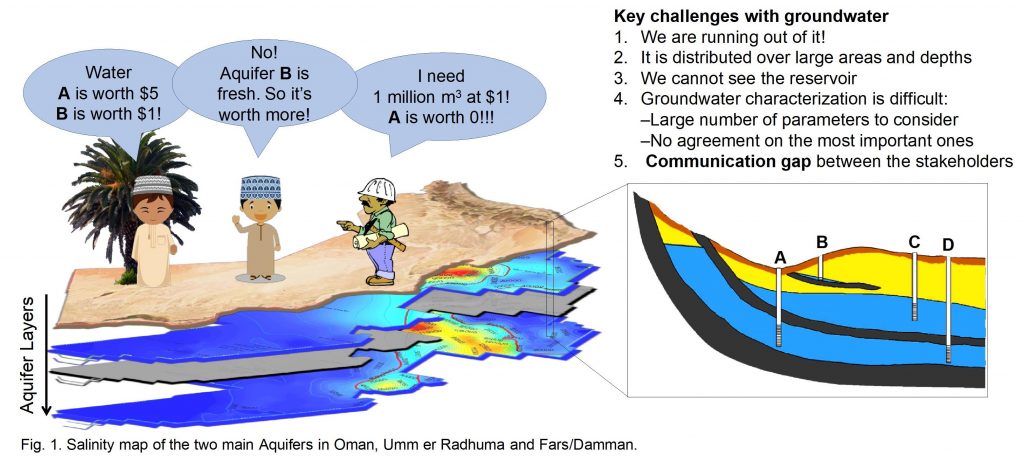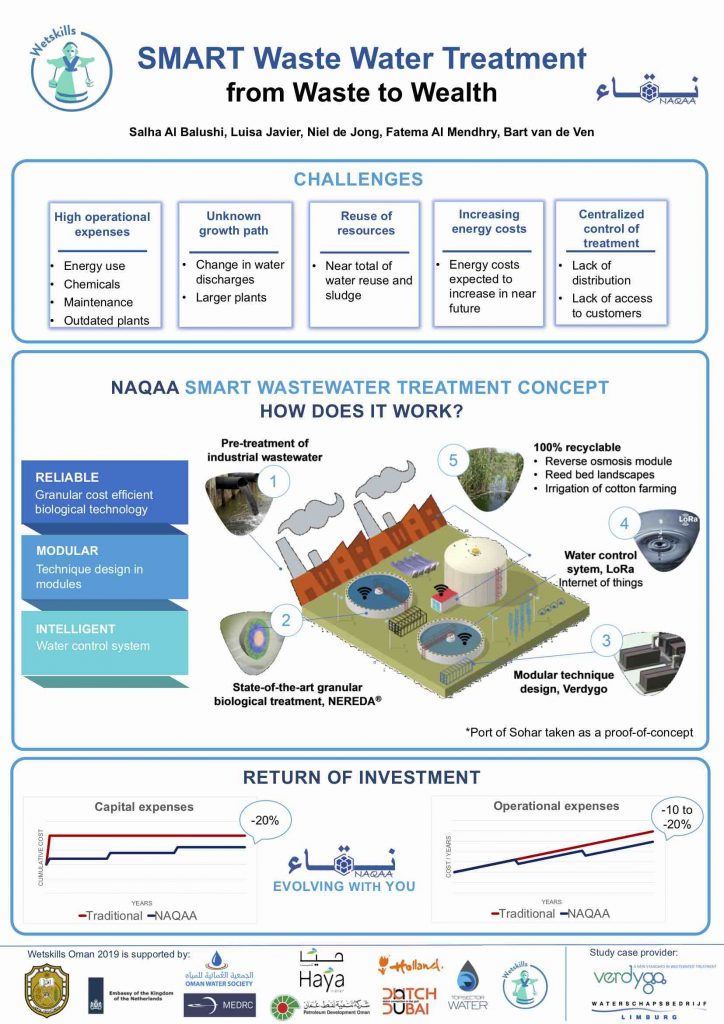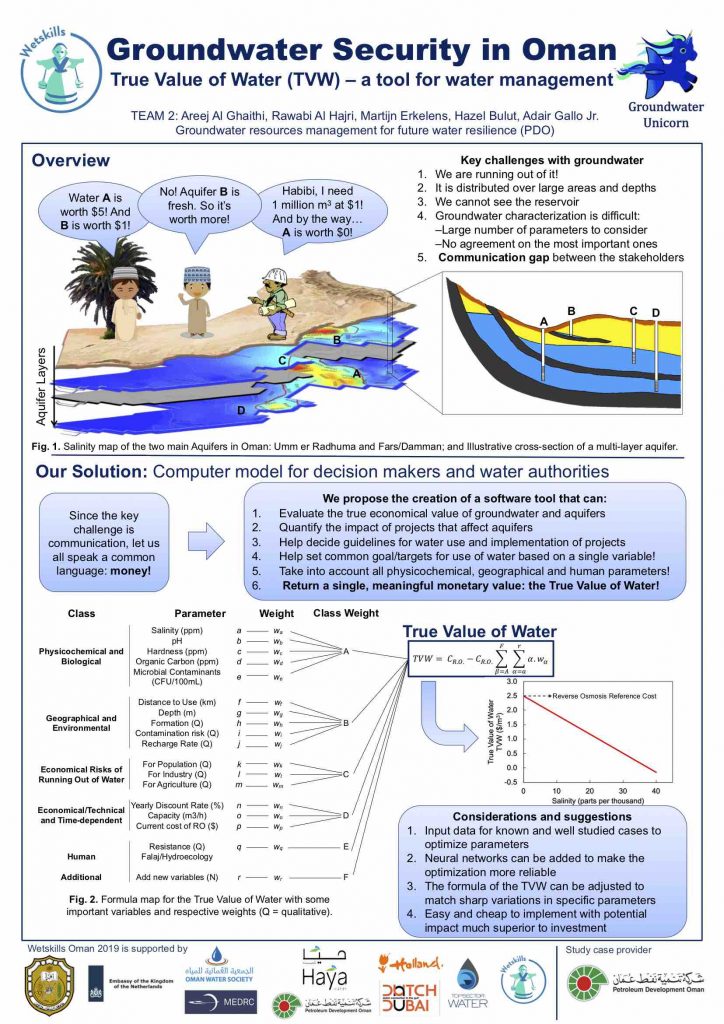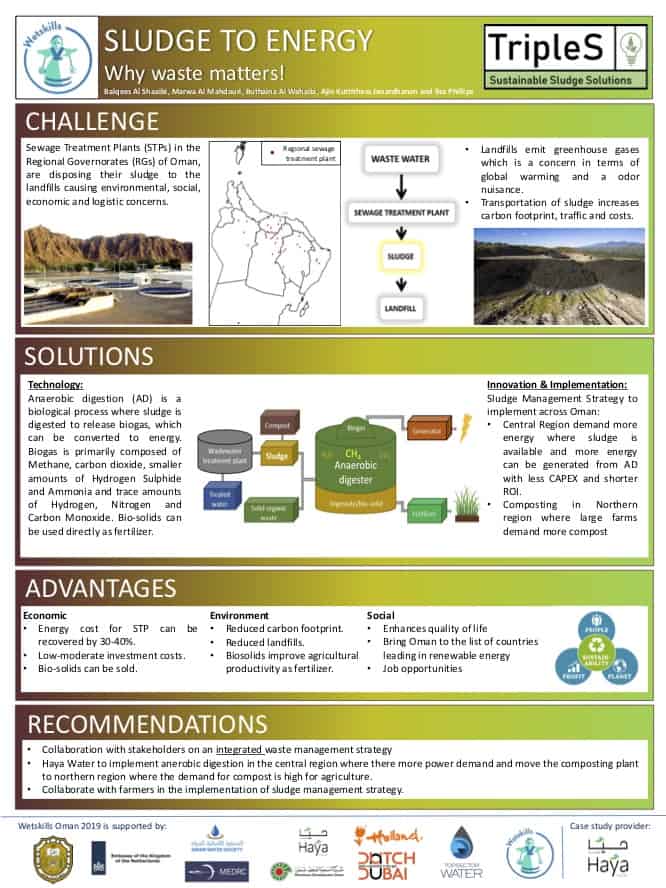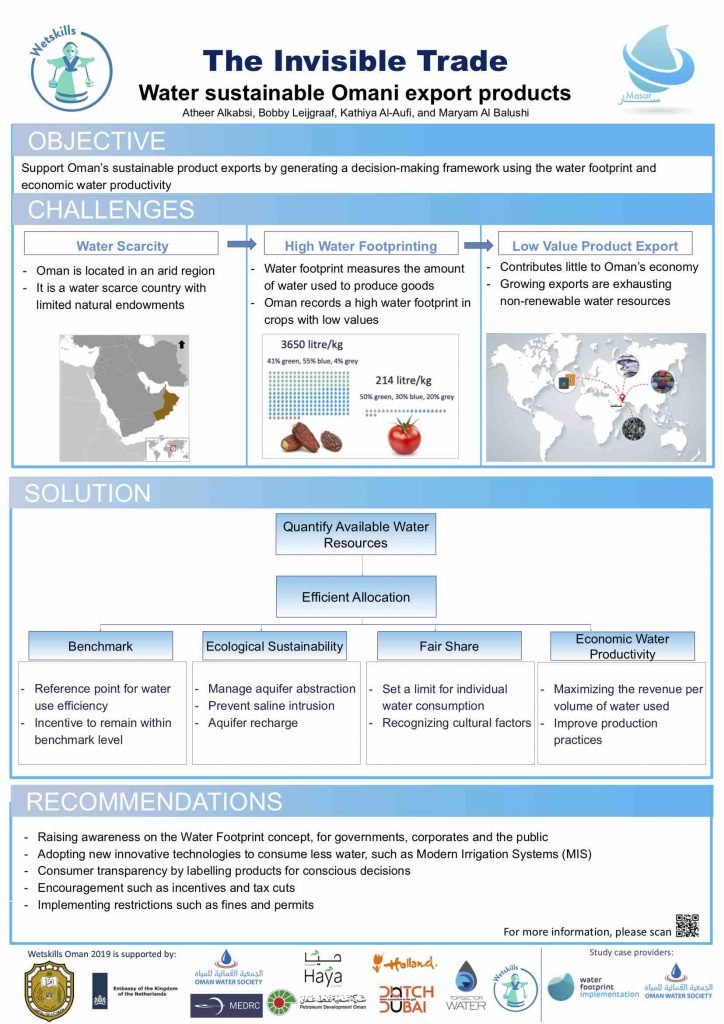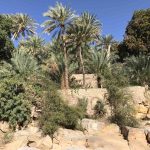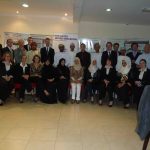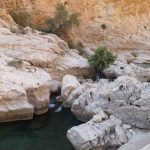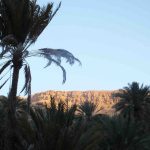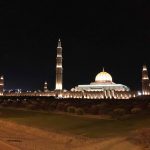
- This event has passed.
Wetskills-Oman 2019
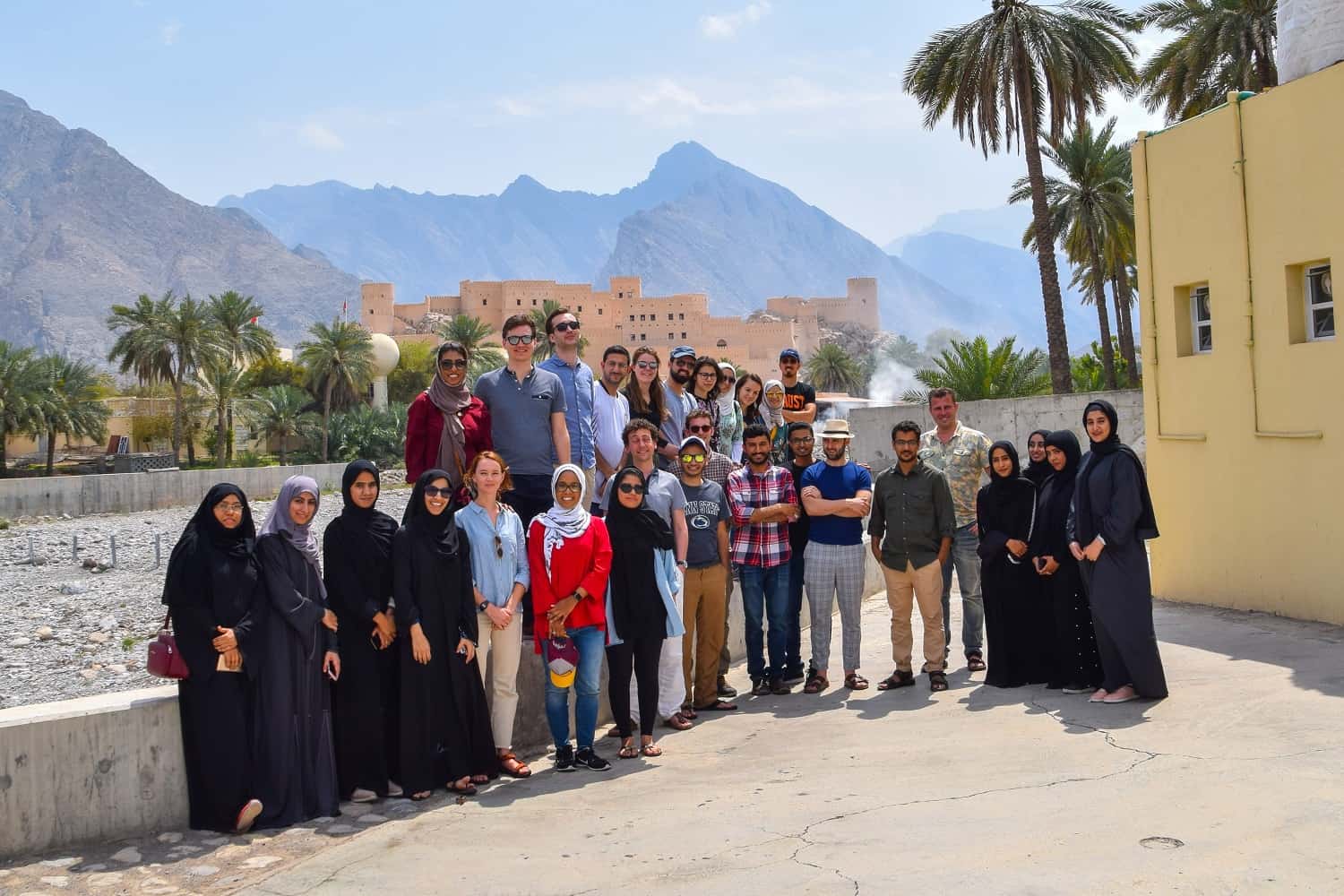

Time for another Wetskills Challenge back in the Sultanate of Oman, the country of Arab horses, 3,156 kilometers coastline, kingfish and kebab, fjord-like landscape (the Norway of the Middle East!), aromas and knives (khanjar, no worries – now a days only worn forceremonial events). But Oman is also a country with severe challenges, including droughts and water scarcity, water salinity and desertification. As one of the oldest human-inhabited places in the world, Oman now faces the impact of human development. Those challenges cannot be addressed without considering water, energy and food as an integrated whole (nexus) and Oman is very well aware of that. Oman and the rest of the Gulf region are excelling with their WEF nexus approach and this offers a great context for our next Wetskills Challenge.
From 15-25 March 2019 this new edition was organised in Muscat, together with local Wetskills host Sultan Qaboos University. We also teamed up with the Embassy of The Kingdom of The Netherlands and Omani partners MEDRC, PDO, Haya water and Omani Water Society. This Wetskills event was dedicated to the Central theme: ‘Water-Energy-Food Nexus’ (also the theme of the WorldExpo Dubai 2020, where Wetskills Foundation will be present as well). The final presentations was in line to the Celebration of the World Water Day 2019. The Wetskills program included workshops, team building, field trips to cases and water areas, meetings and discussions with people in the field, and water-related and cultural visits in and outside Muscat, Haya Water wetlands and the PDO Museum.
Practical information

General Wetskills information

Wetskills-Oman started with speed date discussions with water experts, field visits and team building – and lots of opportunites for informal talks, enjoying the old buildings and beautiful view of surroundings.
Photo’s row 1 | Group picture of Wetskills teams Oman 2019 | Team 5, case Dutch Water Authorities on drought management, in discussion with Mr Jauad El Kharraz, director of research Middle East Desalination Research Center (MEDRC) in Muscat, Oman | Dates, important export product of Oman | Nakhal Fort in mountain area Oman
Photo’s row 2 | Hotsping near Rustaq, teambuilding with feet in 65 °C water | Field visit to hotspring with small cascade, enjoying and experiencing the importance of water in Oman | Water management: wadi, with water only during heavy rain, and a cross over road for the wadi
At the Awarding Ceremony, the jury congratulated all teams with the teamwork and the out-of-the-box solutions they presented. The final winner was the team working on Case 2, finding a solution for Groundwater resources management for future water resilience.
True Value of Water (TVW) – Team 2 worked on a PDO case to develop a straightforward and easy to implement method to assist water authorities to better characterize and allocate available groundwater resources in the Sultanate of Oman. What they developed is method based on a single, meaningful monetary unit, the True Value of Water (TVW). This new method quantifies the monetary value of aquifers, linked to costs – the value of the energy required – to desalinate water.
Cases for Wetskills-Oman 2019

Case 1: Modular wastewater treatment units for flexible water quality improvement
Case owner: Waterschapsbedrijf Limburg (WBL), developer of the Verdygo concept (The Netherlands)
Oman has a large desert area with nomadic tribes, remote villages and oil production fields where water is scarce, but also treatment of wastewater is a challenge. Verdygo is a new, modular technology especially developed for flexible and cost effective water treatment. It is a design with modular, container-sized sewage plant above ground and each container has different wastewater treatment techniques. This makes it possible to design your own modular Sewage Treatment Plant that fulfills specific needs, is flexible and transportable. How could Vergygo contribute to improve the water quality in parts if Oman?
Final poster
Case 2: Groundwater resources management for future water resilience
Case owner: PDO (Oman)
Groundwater is a scarce commodity in Oman. There is an urgent need to preserve it, because of predicted water stress in the future and the potency of using groundwater for multiple uses. There are currently no clear and integrated guidelines to distinguish between exploitable and non-exploitable aquifers. How could Oman create a framework for an effective and sustainable groundwater resources management to protect the natural resources, provide industry and citizens a reliable water source?
Final poster
Case 3: Converting sludge to (renewable) energy
Case owner: Haya Water (Oman)
The concept of energy from waste is getting popular across the globe nowadays. This concept is relevant in countries like Oman, for minimization of their oil dependence. Moreover, ‘waste to energy’ becomes a need within the new governmental vision 2040: encouraging renewable energy production. The implementation of methods at wastewater treatment facilities in regonal governarates is becoming a prominent challenge since the amount of sludge disposal is high and it poses environmental hazards. How could Haya Water create a practical model for effective renewable energy technologies of utilizing sludge and thus minimizing the dependence on electricity?
Final poster
Case 4: Is it worth the water? Water sustainable Omani export products
Case owner: Oman Water Society & Water Footprint Implementation
Oman is water scarce country, with limited natural endowments. Water managers and policy makers should therefore closely monitor who is using the available resources and what for. At the same time, Oman boasts a booming export sector that ships products that are proudly made in Oman to all corners of the Earth. Clearly the financial metrics look good – otherwise the products wouldn’t be sold for export. But how do these products score on water metrics? What is the water footprint of Oman’s most popular export products? What is the economic water productivity of this water that is virtually traded in exported products? How can Oman’s export become water sustainable?
Final poster
Case 5: Droughts are everyone’s challenge
Case owner: Dutch Water Authorities
Oman has a long tradition of coping with water stress and periods of severe droughts. They are experts in drought management. The Netherlands, on the other hand, is a water-rich country with a long-standing history of combatting floods and trying to keep our feet dry. They are experts in water management. Perhaps surprisingly, the Netherlands is becoming more vulnerable for droughts too, as the summer of 2018 showed. In their attempts to fight the effects of drought, the Dutch applied their water management concepts and ideas that include stakeholder involvement and public participation a.o.. But does this Dutch approach work for droughts? Is water management different from drought management? How can both countries learn from each other’s historical battles with water?
Final poster
Event Partners

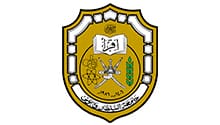
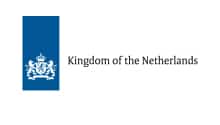


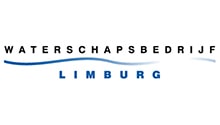

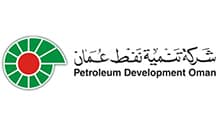
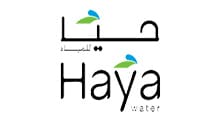
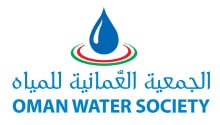
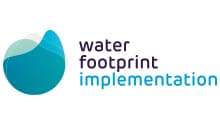
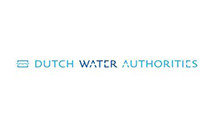


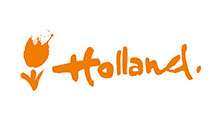
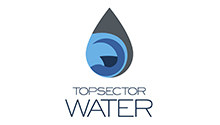
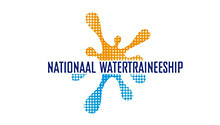
Event Blogs

